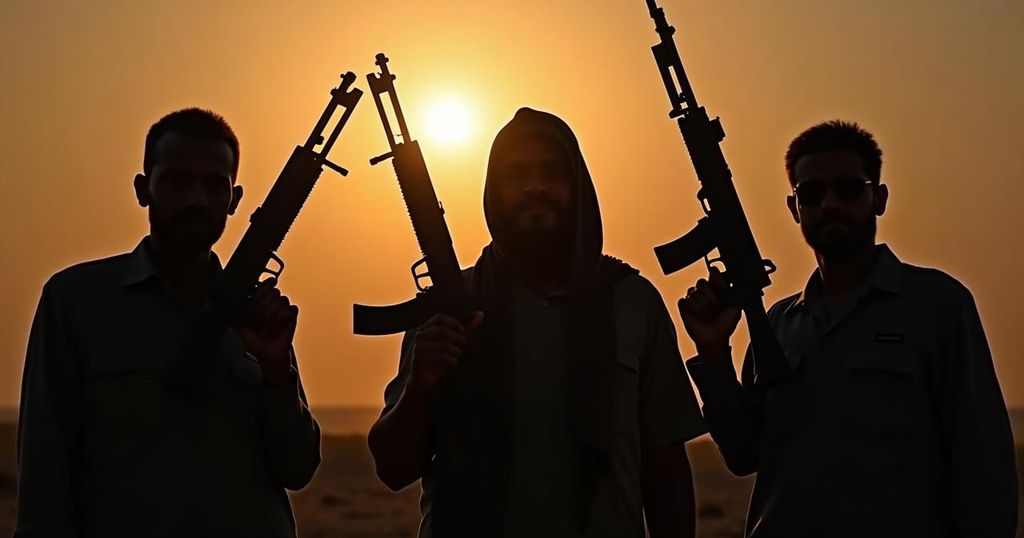Libya Detains Militia Leader Following Killing of Notorious Human Trafficker Abdel-Rahman Milad

Libya’s chief prosecutor has ordered the detention of militia leader Mohamed Bahroun and his aide after the assassination of notorious human trafficker Abdel-Rahman Milad. Milad, accused of leading trafficking operations, was shot in Tripoli, raising concerns over the complex relationships between militias and human trafficking networks. The EU urges stronger action against trafficking in collaboration with Libyan authorities amid ongoing humanitarian crises affecting migrants.
Libyan authorities have detained militia leader Mohamed Bahroun and one of his aides following the assassination of Abdel-Rahman Milad, a highly notorious human trafficker. Milad, who previously led a coastguard unit in Zawiya, was known internationally for his involvement in human trafficking, particularly targeting migrants attempting to cross the Mediterranean. He was shot while seated in a chauffeur-driven vehicle in Tripoli—a fatal incident that prompted Bahroun, the leader of a militia, and his associate to surrender to law enforcement after allegations regarding their involvement in the killing emerged. Additionally, Milad had been sanctioned by the United Nations Security Council due to his trafficking activities and was linked to violent operations against migrant vessels. His history includes prior arrests and a promotion in the ranks of the Libyan coastguard despite his alleged involvement in trafficking. Peter Stano, a spokesperson for the European Union, reiterated the EU’s commitment to urging Libyan authorities to pursue justice against human traffickers. Meanwhile, observers have expressed concern regarding alliances between European agencies and the Libyan coastguard, suggesting that EU funds may inadvertently support human trafficking networks.
The ongoing humanitarian crisis in Libya related to migration is exacerbated by the presence of organized trafficking groups that exploit vulnerable populations seeking to reach Europe. Libya has become a central point for migrants from Africa and the Middle East attempting perilous crossings of the Mediterranean Sea. Despite international agreements with European nations aimed at controlling migration, critiques highlight systemic failures leading to abuses within the detention centers. This situation is further complicated by the complex relationships between local militias, law enforcement, and international agencies involved in migration control.
The recent detention of militia leader Mohamed Bahroun following the assassination of human trafficker Abdel-Rahman Milad highlights the persistent issues related to human trafficking and migrant safety in Libya. As the political and social dynamics in the region continue to evolve, there is a pressing need for accountability and reform within both local governance and international partnerships to better safeguard human rights and combat trafficking effectively.
Original Source: www.euronews.com








